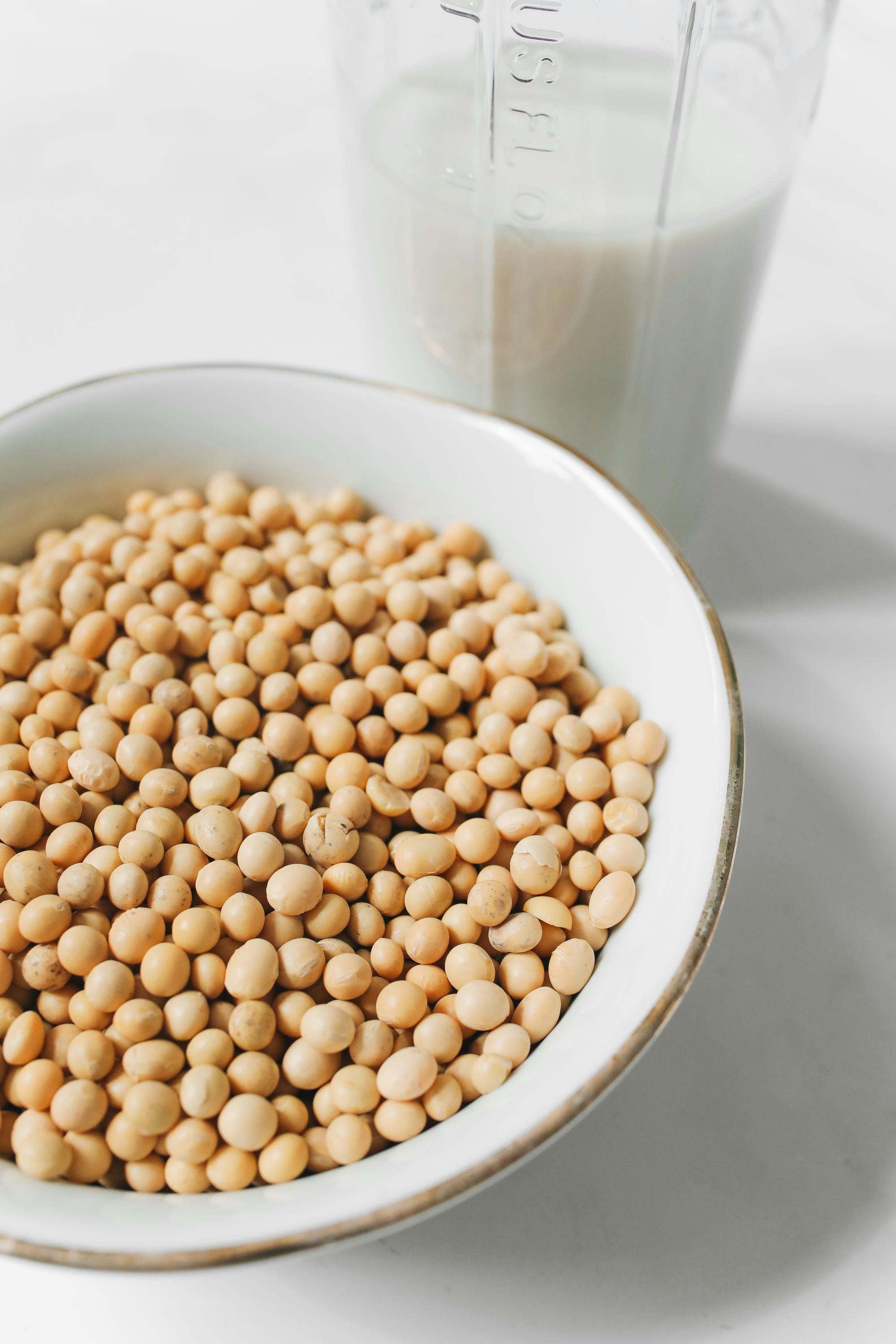- Blog
Legumes as a source of protein? Is soy so bad?
Legumes as a source of protein? Is soy so bad?
- Nutrition
- Life Style


The soybean, a member of the legume family, contains the highest protein content among its peers. This makes soy a popular source of plant-based protein. However, it also contains phytoestrogens—plant compounds that encompass several substances. What this means for the human body is explained below.
Phytoestrogens are similar to the body’s own estrogen, but their effect is typically 100 to 10,000 times weaker. Due to this structural similarity, they can bind to estrogen receptors in various tissues throughout the body, potentially exerting a very mild estrogenic effect.
Does soy consumption lead to feminization in men?
In the past, two isolated case reports of excessive, prolonged soy intake, along with negative findings from animal studies, led to the hypothesis that soy could cause feminization in men. However, scientific studies have shown that typical soy consumption has no adverse effects on testosterone levels, sperm quality, or other fertility parameters (1). As the famous physician Paracelsus once said, "All things are poison, and nothing is without poison. The dose alone makes a thing not a poison."
Can soy cause thyroid problems?
While soybeans, like many other foods such as broccoli, cauliflower, and kale, are considered goitrogenic (meaning they could potentially cause thyroid enlargement), there is no evidence that soy affects thyroid function in healthy individuals, provided there is adequate iodine intake.
Interesting facts:
None of the major nutrition or cancer organizations (such as the BDA, DC, AAP, ACS, or DGE) recommend avoiding soy products.
Genetically modified (GM) plant-based foods, like soy, corn, rice, or canola, must be labeled in Europe by law. However, animal products do not have similar labeling requirements. This means animals might be fed genetically modified feed, which could potentially lead to negative health effects in humans. The exception is organic (BIO) products, where feeding animals GM feed is prohibited.
Many of the critical reports about soy come from U.S. authors, where nearly 90-100% of the soybean acreage is genetically modified. Therefore, the soy situation in the U.S. cannot be compared to Europe.
Soy criticism often originates from the Weston A. Price Foundation (WAPF), a group known for advocating the consumption of saturated fats and cholesterol from traditional foods, supporting local agriculture, and rejecting veganism and certain aspects of vegetarianism. However, most of their claims are anecdotal, inaccurate, or based on insufficient animal studies (Butler, 2010). As Hall (2015) states, "If you read it from WAPF, it’s probably wrong."
Why animal studies are not conclusive
Animal studies are not always applicable to humans because different organisms have distinct metabolic processes. The results from animal experiments cannot be directly transferred to human health.
Key studies:
-Mitchell et al. (2001) explored the effect of a phytoestrogen supplement on male reproductive health and found no negative effects.
-Kulling and Watzl (2003) reviewed the effects of phytoestrogens on human health and concluded that their impact is minimal.
-Taku et al. (2012) conducted a systematic review and meta-analysis, which found that soy isoflavones reduce the frequency and severity of menopausal hot flashes.
Conclusion
Research shows that moderate soy consumption does not have harmful effects on the human body, as long as the diet is well-balanced. Soy can be safely included as part of a varied and healthy eating plan.
Enjoy the day MOVITOS